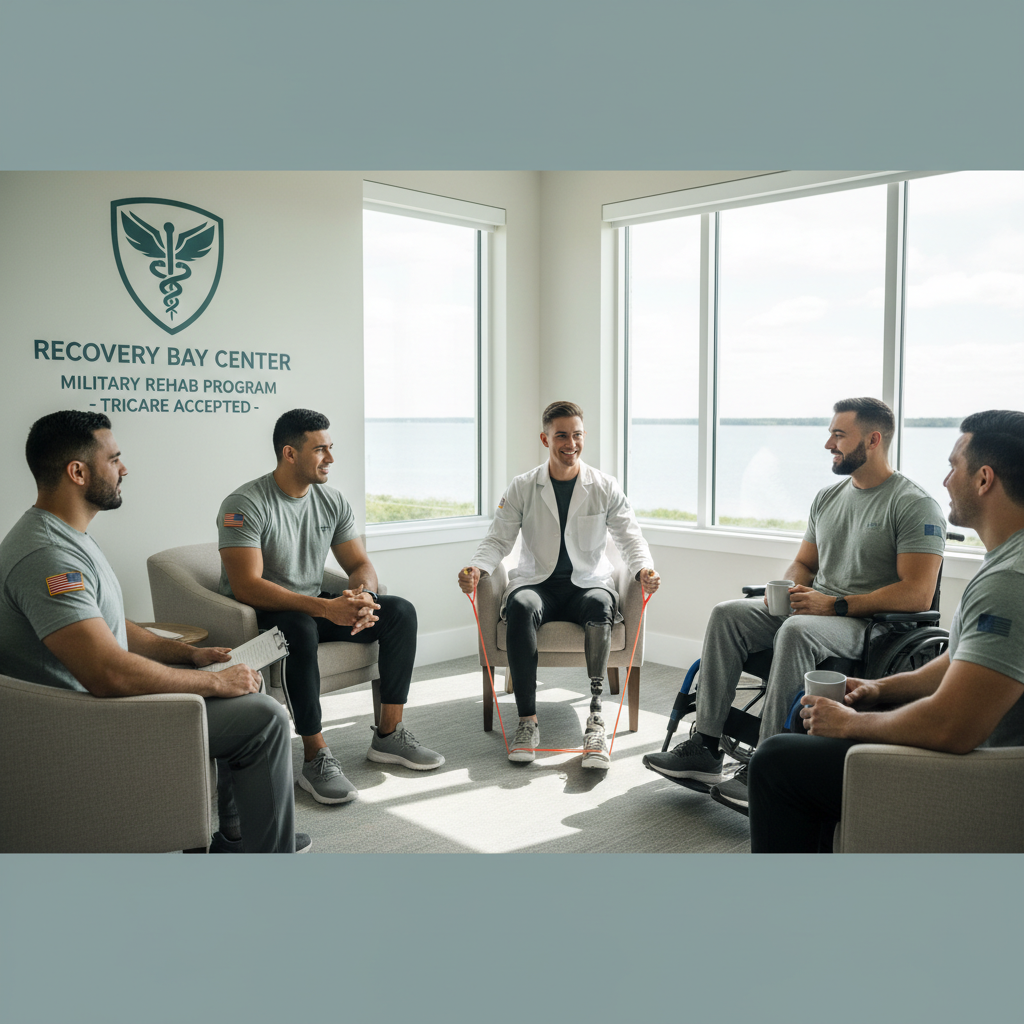Importance of Medical Detox
Medical detox plays a pivotal role in preparing individuals for a successful recovery journey. We recognize that this initial step is crucial in ensuring both safety and a smooth transition to a drug-free state.
Ensuring Safety and Wellbeing
We understand that the detox process must be undertaken in a controlled and supportive environment. Medical detox is essential before starting rehab, as it provides a safe space for individuals to withdraw from substances under the supervision of trained professionals. This approach mitigates the risks associated with withdrawal symptoms, which can be severe and, in some cases, life-threatening, especially during detox from alcohol and benzodiazepines (Malvern Treatment Centers).
| Risk Factors | Substance Type | Detox Requirement |
|---|---|---|
| High risk of severe withdrawal symptoms | Alcohol, Benzodiazepines | Medical supervision essential |
| Physical dependence | Opioids, Stimulants | Professional help recommended |
Medical professionals are equipped to administer necessary medications that can ease withdrawal symptoms, ensuring safety and wellbeing during this critical phase of treatment. 24/7 monitoring by specialists allows for swift intervention if complications arise (Mountainside).
Transitioning to Drug-Free State
Transitioning to a drug-free state is not just about eliminating substances but also about preparing individuals psychologically and physically for the recovery process. Medical detox lays the groundwork for this transition by addressing physical dependency and the accompanying psychological effects that can arise during withdrawal.
A medically supervised detox program tailors the treatment approach to the individual’s specific needs, factoring in their level of substance dependency and any co-occurring mental health conditions (Good Therapy).
For a comprehensive understanding of what to expect during medical detox, we invite you to explore our article on what to expect during medical detox at a professional facility.
By choosing Recovery Bay Center for your medical detox and substance abuse recovery care, you ensure a safe, supportive pathway to recovery, setting a solid foundation for your healing journey.
The Role of Medical Detox
Medical detox plays a critical role in the recovery process for individuals struggling with substance use disorders. Understanding this process can help us appreciate why medical detox is essential before starting rehab.
Managing Withdrawal Symptoms
Withdrawal symptoms can be uncomfortable and even dangerous for those who have developed a dependence on drugs or alcohol. Medical detox is designed to address these symptoms effectively. This process allows the body to rid itself of the substances while ensuring a safe transition to a drug-free state. Our facility offers managing withdrawal safely with 24/7 medical supervision, which is vital for minimizing the risks associated with withdrawal.
The severity and type of withdrawal symptoms can vary greatly depending on the substance involved. Here is a comparison of withdrawal symptoms for common substances:
| Substance | Withdrawal Symptoms |
|---|---|
| Alcohol | Tremors, anxiety, nausea, seizures |
| Opioids | Muscle aches, insomnia, diarrhea, sweating |
| Kratom | Irritability, insomnia, nausea, muscle pain |
| Fentanyl | Severe pain, anxiety, sweating, nausea |
For more about specific withdrawal experiences, we recommend checking out our article on detoxing from opioids vs. alcohol: differences in care and support.
Addressing Physical Effects of Addiction
Medical detox not only manages withdrawal but also works to address the physical effects of addiction. The main goal is to return the body to a healthier state by purging the toxins left by drugs and alcohol (Malvern Treatment Centers). By detoxifying the body, individuals can begin to heal physically, laying the groundwork for their subsequent rehabilitation process.
Detoxification is crucial, but it is only one piece of the puzzle. Successful detox should be followed by a comprehensive treatment plan. Detox lays the foundation for recovery, but doing just detox without following up with rehabilitation can lead to high relapse risks. The importance of a thorough rehabilitation program is detailed in our article about how detox sets the foundation for long-term sobriety.
Recovery Bay Center is dedicated to providing detailed care during detoxification while preparing individuals for the next steps in their recovery journey. By linking detoxification directly with substance abuse treatment, we enhance recovery outcomes and lower the likelihood of future issues associated with substance use.
Detoxification Process
Detoxification is a crucial first step in the journey toward recovery. Our goal is to return the body to a healthy state by purging toxins from drugs and alcohol and addressing the physical effects of addiction, including physical dependence and tolerance.
Purging Toxins from the Body
The detox process involves the elimination of harmful substances that have accumulated in the body. This is often a medically supervised process that helps to ensure safety and comfort. During detox, we focus on providing appropriate care to facilitate the body’s natural ability to remove these toxins.
One of the primary objectives of detoxification is to manage withdrawal symptoms effectively. These symptoms can range from mild discomfort to severe reactions, depending on the substances used and the duration of abuse. A professional medical detox program can minimize these symptoms and create a safer, more supportive environment. For more details on managing withdrawal safely, please refer to our article on managing withdrawal safely with 24/7 medical supervision.
Treating Physical Dependence and Tolerance
Detoxification also addresses physical dependence, wherein the body adapts to the presence of a substance, leading to tolerance. Tolerance means that individuals require increasing amounts of the substance to achieve the same effect, which can perpetuate the cycle of addiction.
Addressing these factors is essential in the detox process. The goal is not only to purge the toxins but also to prepare the body for subsequent rehabilitation treatments. Although detox lays the foundation for recovery, it is important to note that it does very little to assist in achieving long-term sobriety. Without further treatment after detox, individuals are at a high risk of relapse (Malvern Treatment Centers).
| Aspect | Detox Process |
|---|---|
| Purpose | Purge toxins from the body |
| Main Focus | Address physical dependence and tolerance |
| Medical Supervision | Essential for safety |
| Next Step | Rehabilitation to stay sober |
To learn more about the detox process and what to expect, visit our article on what to expect during medical detox at a professional facility. By understanding the detoxification process, we can better appreciate its importance in the overall roadmap to recovery and continued sobriety.
Medical Detox vs. Unsponsored Detox
When considering the journey to recovery, understanding the differences between medical detox and unsupervised detox is crucial. We emphasize the importance of selecting a professional facility for medical detox, as this choice can significantly affect an individual’s safety and overall success in recovery.
Risks of Unsupervised Detox
Opting for an unsupervised detox can lead to severe and potentially life-threatening consequences. Withdrawal symptoms vary greatly based on an individual’s addiction history, the substances involved, and their overall health. Risks associated with unsupervised detox include:
| Withdrawal Symptoms | Potential Consequences |
|---|---|
| Nausea | Severe dehydration |
| Seizures | Risk of coma |
| Hallucinations | Psychological trauma |
| Increased anxiety | Possible death |
Detoxing from substances such as alcohol and benzodiazepines, in particular, can be life-threatening. This is why medical detox is recognized as the safest route to rid the body of drugs while effectively managing withdrawal symptoms (Malvern Treatment Centers). In a medical setting, trained professionals can monitor vital signs and administer medications to ease withdrawal symptoms, significantly enhancing safety (SAMHSA).
Need for Medical Intervention
The necessity for medical intervention during detox is paramount. Medical detox allows individuals to safely transition from active substance use to a drug-free state, which is the foundational step before engaging in rehabilitation. Without proper supervision, individuals may risk experiencing severe withdrawal symptoms that can deter their recovery efforts.
Medical professionals are not only equipped to handle potential emergencies but can also tailor treatment plans based on individual needs. The process of removing toxins from the body while ensuring safety underscores our understanding of why medical detox is essential before starting rehab. We encourage anyone interested in pursuing recovery to explore what to expect during medical detox at a professional facility to gain further insight into the process.
For those considering the nature of their specific substance dependence, our resources on detoxing from opioids vs. alcohol: differences in care and support and understanding fentanyl detox: risks and protocols can provide valuable information to help them make informed decisions. With medical intervention, we can improve the likelihood of a successful recovery journey.
Detoxification for Rehabilitation
Building Foundation for Recovery
Detoxification is a critical first step in the journey of recovery from substance use. It lays the groundwork necessary for a successful rehabilitation process. While detox is essential for removing toxins from the body and managing withdrawal symptoms, it alone does not guarantee long-term sobriety. Individuals who undergo detox without subsequent treatment are at a heightened risk of relapse (Malvern Treatment Centers).
Detox establishes the initial safety net, allowing the body to stabilize post-withdrawal. However, to truly understand addiction and cultivate long-lasting recovery, it is vital that individuals engage in comprehensive rehabilitation programs. During rehab, individuals gain insights into triggers, learn coping strategies, and develop new behaviors to replace substance use.
| Aspect | Importance |
|---|---|
| Safety | Ensures medical supervision during withdrawal |
| Stabilization | Provides a secure base before addressing deeper issues |
| Risk Reduction | Lower chances of relapse when followed by rehab |
Importance of Post-Detox Rehabilitation
Post-detox rehabilitation is crucial for successfully managing addiction. This phase not only focuses on the psychological and behavioral aspects of substance use but also equips individuals with tools and skills necessary for sustainable sobriety. Through rehabilitation, individuals learn to understand their triggers, develop strengths, and identify alternative behaviors to substance use.
Rehabilitation offers therapy and support to help individuals manage their mental health, a vital component often overlooked during detox. By integrating both detox and rehab, individuals are provided with a holistic approach to recovery. The combination facilitates a smooth transition from detox to ongoing treatment, ensuring a well-rounded path to health.
To further explore how detox sets the foundation for long-term sobriety, visit our article on how detox sets the foundation for long-term sobriety. Understanding the difference between detox and rehab highlights the necessity of both for effective recovery. For a deeper insight into coping during detox, check out our piece on managing withdrawal safely with 24/7 medical supervision.
By working together, detox and rehabilitation create a supportive environment, mitigating the risks that come with unsupervised detox attempts, which often lead to a cycle of relapse (Mountainside).
Successful Transition to Treatment
Factors Facilitating Admittance to Treatment
Transitioning from medical detox to rehabilitation is a crucial step in the recovery journey. Several patient-related factors can facilitate this admittance. These factors include:
- Negative Consequences: Individuals who have experienced serious repercussions from substance use, such as health issues or legal problems, often feel a heightened urgency to seek help.
- Social Pressures: Support from family and friends can serve as a significant motivator, pushing individuals toward treatment.
- Personal Motivation: A strong desire to change and improve one’s life often plays a vital role in moving from detox to treatment.
- Increased Substance Use: Those who have recently increased their drug use or experienced an overdose may recognize the need for urgent intervention.
- Previous Treatment Admissions: Past experiences with rehabilitation can reinforce the desire to seek further assistance.
On a program level, several characteristics enhance successful transitions into treatment, including:
| Program Characteristics | Description |
|---|---|
| Active Discharge Planning | Ensures that individuals know the next steps after detoxification. |
| Skilled Providers | Increases confidence and trust in the treatment process. |
| Motivational Enhancement Therapy | Helps patients build a commitment to recovery. |
| Peer Support | Provides a sense of community and understanding among individuals facing similar challenges. |
| Women-Only Programs | Offers a comfortable environment for female patients. |
| Case Management Assistance | Helps navigate the treatment process effectively. |
| Patient Education | Informs individuals about their substance use and recovery options. |
| Rapport Building | Establishes trust and encourages openness between patients and providers. |
For further insight into what to expect during the transition process, we recommend reading about what to expect during medical detox at a professional facility.
Enhancing Recovery Through Continued Care
Post-detox rehabilitation is essential in securing long-term sobriety. Ongoing support not only addresses the underlying issues related to substance use but also reinforces the lessons learned during detoxification. Combining detox with therapy has proven effective for many individuals making this transition. Therapeutic strategies can help to ease the adjustment period and provide comprehensive support during early recovery.
Research shows that combining detox and therapy can:
- Help manage withdrawal symptoms effectively
- Build coping strategies for triggers and cravings
- Create a supportive environment through peer and professional involvement
For more details on integrating therapies and their benefits, check out our article on combining detox with therapy for a seamless transition to rehab.
Continuing care enhances the chances of maintaining recovery and addresses additional challenges that individuals may face, laying a strong foundation for lasting change. For further exploration of how detox sets the foundation for long-term sobriety, please visit how detox sets the foundation for long-term sobriety.





